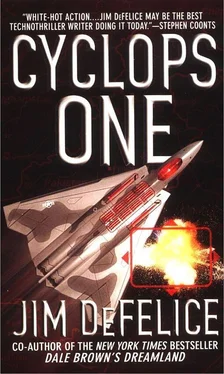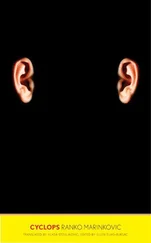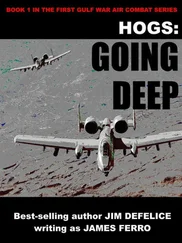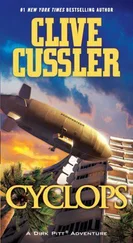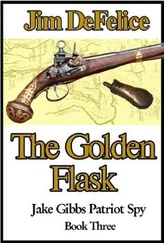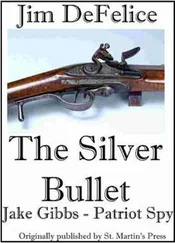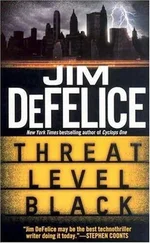“That’s why I came over,” said Howe. “The engineers want to put Bird One through its paces, and I’m going to do it.”
Bonham poured two fingers’ worth of Scotch into a tumbler, then went to the small refrigerator he kept in the corner of the room. The tiny ice tray in the unit’s freezer was about three-quarters full; he popped out two cubes and put it back.
“Have a seat, Tom. Take a load off.”
The sides of the small, foam-cushioned chair seemed to pop out as Howe sat on it, as if it were a balloon. Howe shifted uncomfortably, right leg over left, then left over right, then back. Bonham thought to himself that he would not have wanted to trade places with the colonel, who until a few days ago seemed to be riding the career rocket to a general’s star and beyond.
Bonham liked Howe. He was a good, competent officer, and while more than a bit impatient with the bureaucratic side of the job — almost a given for anyone with the flying background Howe had — he made up for it by delegating those responsibilities to people who could handle them.
A little unimaginative. But that could be a useful flaw. Bonham would see that his career wasn’t screwed by this. A few bumps, admittedly — Gorman was just the start — but with patience it could be overcome.
Hard for Howe to know that now, though. Surely he had no reason to be optimistic.
“Tough to lose a wingmate,” Bonham offered.
“Yeah,” said Howe.
“And Ms. York. I know you two were close.” Bonham swirled his Scotch, then took a long sip. Either because of the drink or the hangdog look on Howe’s face, he suddenly felt paternal. “We get through the inquiry stage, people are going to understand that what we do here is loaded with danger. Tragedy, people will understand. This isn’t a normal situation,” said Bonham. “It’ll be taken into account. You’ll probably be commended for saving the plane.”
Howe gave him a wan smile, surely not believing him.
“You know, when I was a young buck, we lost a Phantom over Alaska,” said Bonham, playing the old soldier who’s seen everything. “Didn’t find it until two years later. Person who found it, flying one of those old Otters or whatever the hell it was they call those things. Utter accident.”
The story wasn’t completely apocryphal; there had indeed been a crash in Alaska, though not while Bonham was there, and not by a Phantom. It had, however, taken considerable time to find, and Bonham knew enough details to use the story to make his point. And the Scotch warmed his mouth and throat in a way that he really, truly wanted to cheer the colonel up.
“Thing is, it can take forever in that wilderness to find a crash. We will eventually,” said Bonham.
“It’s odd that there was no satellite coverage,” said Howe.
The statement seemed particularly pointed. Bonham got up and refilled his drink.
“I guess they took that one out for repair or whatever,” said Bonham. “There are satellites, though. With the weather, where you were operating, they couldn’t see anything. From what Colonel Gorman told me, they have ample assets for the search. We’ll find it eventually. It takes time.”
“Has Fisher spoken to you?”
“The FBI agent?”
“He asked me if Williams needed money.”
Bonham laughed. “What, did he think he crashed on purpose?”
He shook his head as he drank the Scotch. A real bee, that FBI bastard.
“Listen, Tom, I wouldn’t worry about the investigators, especially the FBI and CID people. They run around, kick over chairs, stir up dust, see what happens. This Fisher — he’s probably just trying to rile you.”
Howe rose. “Well, I just wanted to give you the heads-up.”
“I appreciate it. You take care tomorrow.”
“Yes, sir. Thank you.”
After he locked the door, Bonham poured himself another drink, this one about halfway up the glass.
They put Fisher and the rest of the investigators up in what passed for VIP quarters in a building near the base of the mountain, reachable via a road obviously built for a donkey cart. VIP here apparently meant you were entitled to running water — cold and colder — in the bathroom. There was a personal coffeemaker on the bureau; its carafe looked like a shot glass with handles. The coffee itself was World War I surplus; if he’d had the equipment, Fisher would have ground up the furniture’s cardboard drawers to add to the aroma.
The only thing that ticked him off, though, was the lack of a brew-and-pour device on the coffeemaker. The FBI agent was as much a traditionalist as anyone, but there were some pieces of technology that you just couldn’t live without. A Mr. Coffee without brew-and-pour was not only anachronistic, it was practically a torture device.
Fortunately, Fisher was adept at dealing with such problems, managing a shuffle with two paper coffee cups that caught most of the dribbling liquid. What missed the cup added a nicely burnt aroma to the room’s musty odor.
Coffee depleted, Fisher ambled out of the room into the long, dimly lit hall, where he was immediately assailed by Kowalski.
“Not going to be fashionably late?” asked the DIA agent.
“I try not to miss breakfast,” said Fisher.
“No, for the briefing. Gorman didn’t call you?”
“I have a policy against answering phones in VIP suites,” said Fisher. “And I was probably in the shower.”
“You don’t smell it.”
“You’re getting funnier, Kowalski. Be joining the circus any day now.” Fisher lit a cigarette as they approached the steel doors leading outside. A pair of Humvees were waiting at the dust that passed for a curb in front of the building. As soon as they reached the entrance to the underground complex, the strong scent of burnt caffeine tickled his nostrils, pulling him in the direction of the conference room.
Two large coffee rigs had been set up outside the room. The sight and smell restored Fisher’s faith in the Air Force; finally a grouchy chief master sergeant had arrived and taken things in hand. His opinion was confirmed by the lavalike liquid that spewed from the urn. Fisher filled three cups, tripling them to keep from burning his fingers, then brought them into the small lecture room. Unfortunately, all the good seats were taken, and he wound up sitting in the front row.
“Glad you could join us,” sniped Gorman as she strode across the room.
“Your health,” saluted Fisher as he sipped the coffee. Its temperature had now dropped to five hundred degrees kelvin, just where he liked it.
“You have anything new?” she asked Fisher. She was in good form for such an early hour; her voice sounded like a cross between a snake and an injured lion.
“Found a few hot porn sites on the Internet. All amateurs.”
Gorman gave him one of her middling frowns. “You’re not being helpful.”
“I’m trying.”
“Would you be willing to interface with the Mounties, flesh out reports about low-flying planes?”
“I don’t speak Canadian,” he told her.
Gorman shook her head, then walked to the podium and began her meeting. She ran through the usual administrative diddly, then briefly summarized the present status of the search. As the team leaders gave their own updates, she stuck her nose into her notes.
“Hey, guest speaker coming up,” whispered Kowalski, who’d managed to find a second-row seat almost directly behind him.
“How do you know?” said Fisher.
“She always checks her notes for pronunciation before mangling somebody’s name.”
Sure enough, Gorman did have a guest, whom she introduced when everyone else was through. “For those of you who don’t know him, Stephen Klose is from the NSA. He doesn’t have a job title.”
Читать дальше
